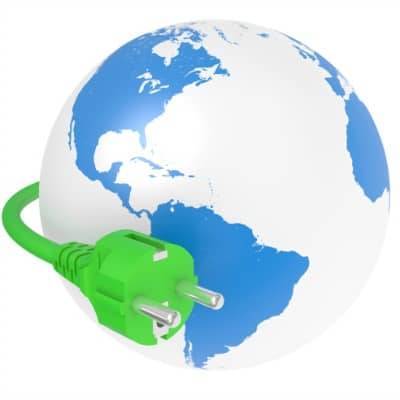To mark the one-year anniversary of President Donald Trump’s announcement to withdraw the U.S. from the Paris Agreement, Gov. Andrew M. Cuomo, D-N.Y., has announced a wave of new U.S. Climate Alliance initiatives to further progress on emissions reductions to meet the agreed-upon targets.
The governor says the U.S. Climate Alliance has made substantial progress toward the implementation of its commitment to uphold its share of the Paris Agreement: In total, 16 statesand Puerto Rico continue to be on track to collectively meet their share of the U.S. climate target to reduce emissions by 26%-28% from 2005 levels by 2025.
“New York’s commitment to the Paris Agreement is stronger than ever as we continue to strengthen the U.S. Climate Alliance global fight against climate change,” Cuomo says. “Despite the federal government’s environmental inaction, New York and the coalition of states will lead by example with unprecedented investments in renewable energy, cutting harmful emissions, all while creating a clean energy economy.”
According to Cuomo, the new initiatives are as follows:
- Reducing ‘Super Pollutants’: U.S. Climate Alliance states are committing to reduce short-lived climate pollutants and are issuing a challenge for others to follow their lead. The alliance plans to release an action plan at the Global Climate Action Summit in September to drive down these emissions by phasing down hydrofluorocarbons, capturing and putting waste methane to work, and addressing super emitters.
- Mobilizing Financing for Climate Projects: U.S. Climate Alliance states are collaborating on a green bank initiative to expand sustainable infrastructure financing opportunities and help advance new green banks. As a part of this initiative, NY Green Bank is raising at least $1 billion from the private sector to deploy nationally, as well as providing resources and capacity that can be leveraged by newly established green banks.
- Grid Modernization: Alliance states are working together on an initiative to expand the adoption of approaches to utility planning, such as New York’s Reforming the Energy Vision (REV), that can meet electricity demand while avoiding the build-out of traditional electric transmission and distribution infrastructure. These “non-wires alternatives” are driving the deployment of distributed clean energy resources, reducing emissions and saving customers money, the governor says.
- Renewable Energy: The states are collaborating on an initiative to reduce the costs of solar projects. Building on best practices pioneered by U.S. Climate Alliance states, such as REV, the initiative is developing implementation resources for states and local governments to drive down the non-hardware “soft costs” of solar. These steps could lead to better economics for customers and greater solar deployment while also helping to offset the impact of the solar tariffs established by the federal government in January.
- Appliance Efficiency Standards: States are working together to advance energy efficiency standards for consumer products and appliances to save Americans money in energy costs and cut greenhouse-gas emissions.
- Building Resilient Communities and Infrastructure: The U.S. Climate Alliance, in partnership with The Nature Conservancy and the National Council on Science and the Environment, is working to build greater resiliency of its communities, including by fundamentally changing the way infrastructure is designed and procured. U.S. Climate Alliance states are analyzing their respective states’ infrastructure risks now and in the future from vulnerability to floods, wildfire, and drought to inform mitigation and adaptation planning.
- Increasing Carbon Storage: U.S. Climate Alliance states are pursuing opportunities to increase carbon storage in forests, farms and ecosystems and are launching a new initiative to identify best practices for land conservation, management and restoration to develop a carbon storage policy framework for implementation. This work is supported through a strategic partnership with The Nature Conservancy, American Forests, World Resources Institute, American Farmland Trust, the Trust for Public Land, Coalition on Agricultural Greenhouse Gases and the Doris Duke Charitable Trust.
- Deploying Clean Transportation: The states are collaborating on an initiative to accelerate the deployment of zero-emissions vehicles, expand and improve mass transit and active transportation choices, and implement other measures for moving toward zero-emission vehicles.




